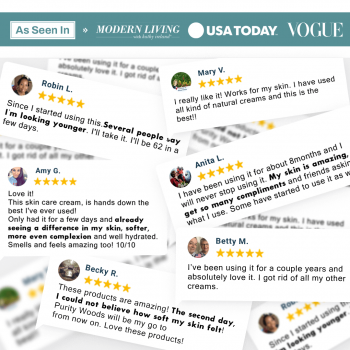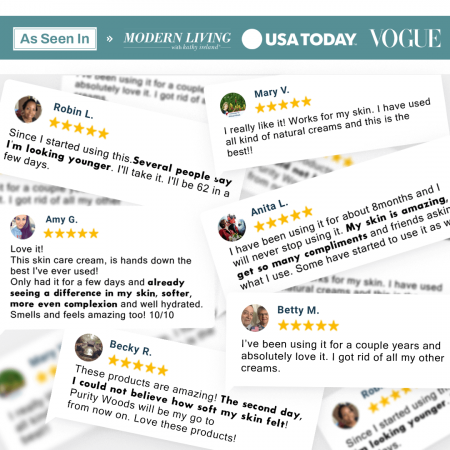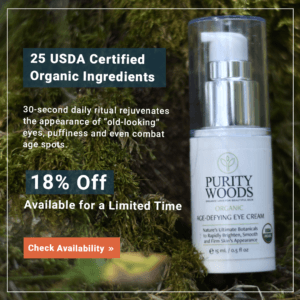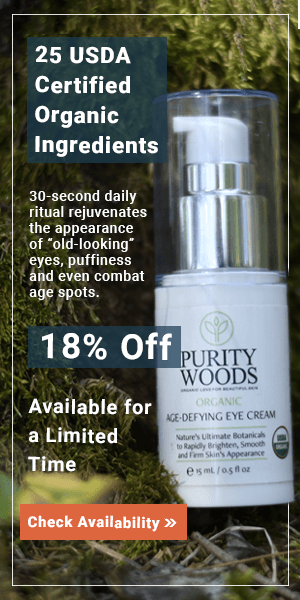

Could These 3 Habits Be Making Your Dark Under-Eye Circles Worse?
(and what you can do about it…)
(and what you can do about it…)
Did you know that the skin under your eyes is 10 times thinner than the rest of your face?
It’s like fine silk.
That’s why, if you’re serious about depuffing and getting rid of those eye bags, it’s important to know which habits might be holding you back.
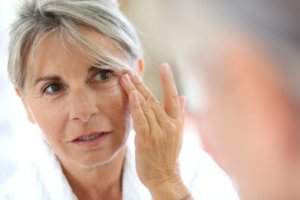
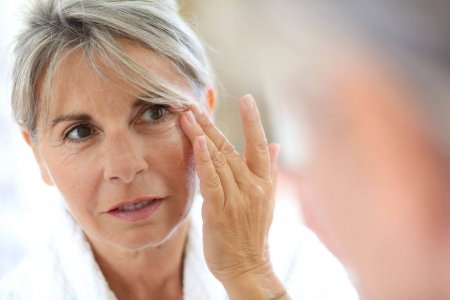
In this short article we’ll cover 3 habits that might be stressing-out your skin then…
I’ll share how some women are going beyond collagen to get back to glowing skin.
Let’s start with…
#1: Foods That Trigger Puffy Eyes
Most of us have tried ‘cucumbers resting on closed eyes‘ in hopes of some puffy eyes relief.
But, have you ever suspected a tomato could be making things worse?
Yes. It’s because tomatoes have ‘solanine.’
It’s a bitter-tasting compound found in nightshade veggies like tomatoes and eggplant.
Solanine is how some plants fight back against insects and other predators.
This happens because solanine is toxic to those insects
What else can solanine do?
It triggers skin inflammation and puffy eyes.
And while some solanine can be removed by boiling, if you’ve got sensitive skin, limiting tomatoes and eggplants will help you depuff under-eye bags.
#2: Washing Your Face With Hot Water
Most of us don’t think twice about washing our face with hot water (especially on a cold morning), yet it irritates your delicate skin.
It doesn’t just irritate skin…
The habit of washing your face with hot water is like ‘pressing the accelerate button’ on skin aging.
Why?
Because it slows down the production of collagen and sebum.
Take a moment and have a look at the palms of your hands.
Here’s why they’re one of the first spots to be affected with dry skin: they have no sebaceous (oil) glands.
No sebaceous (oil) glands. No sebum.
Sebum is that waxy layer keeping your skin moisturized and supple. It’s also the skin’s natural barrier.
And what happens when we keep chipping away at our skin’s natural barrier?
It opens the door for freckles, photosensitive rashes and UV-induced skin damage.
Here’s something else you wouldn’t suspect increases UV damage:
#3: Retinol
Most people turn to retinol hoping for that age-erasing effect.
As good as retinol is, it works for some people, but not others.
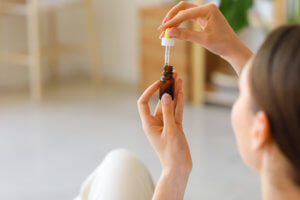
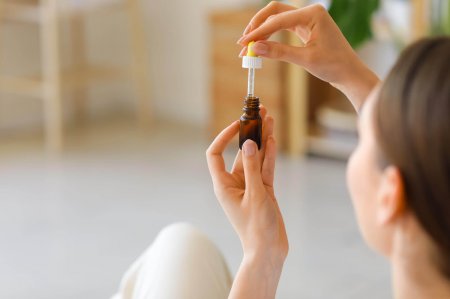
You see, there’s a reason woman with sensitive or dry skin need to skip retinol a day before exfoliating:
Retinol makes your skin more sensitive to UV rays and sunlight.
This opens the door to ‘dark sun spots’ – except, these are dark, blotchy patches under the eyes.
That’s why, you’re often advised to avoid going out in the sun immediately after using retinol.
Actually, you shouldn’t be using it on vacations where you’re out and about in direct sunlight.
And while it’s a good idea to start slowly, applying retinol no more than twice a week, here’s a few things that are hard to side-step when using Retinol:
- Retinol makes your thin under-eye skin to go dry.
- Not only that, it also makes your skin more sensitive to UV-rays.
- And it doesn’t help that our skin gets more dry with age – because older skin has less oil and sweat glands.
- What’s more, women with sensitive skin often see their wrinkles accentuate as they start using Retinol.
Can you see how this spells trouble for anyone who is prone to redness or breakouts, or trying to hide wrinkles?
And What Triggers More Wrinkles as We Age?
Loss of elasticity and collagen.
Read that again.
For the longest time, it puzzled me how every cream and potion only focused on boosting collagen (while ignoring the elasticity factor).
Let me explain.
Excellent skin ‘elasticity’ is the reason 20-year-olds don’t have to worry about laugh lines turning into wrinkles or dark spots.
Excellent skin ‘elasticity’ unlocks the key to zapping away those dark circles and puffiness.
Now, how do you know if you’ve got low skin ‘elasticity’?
Pull on the skin at the back of your hand and watch.
Does it take a good moment to snap back into place?
If you’ve answered yes, you’re probably wondering why most smart skincare routines ignore this.
Beyond Collagen
Collagen makes up 75% of your skin.
But, did you know that collagen has a twin that’s 1,000 times more ‘stretchy’?
And This has everything to do with boosting your skin’s ‘elasticity.’
I’m talking about elastin.
Elastin is a protein that works hand-in-hand with collagen.
- Not enough collagen and we get “deflated-looking” skin.
- Not enough elastin and we get that “droop” under the eyes and cheeks.
It’s particularly important for women over 40. Here’s why:
That’s when our body slows down the production of elastin down to a trickle.
And that happens because the enzyme ‘elastase’ kicks into high gear…
Robbing Our Skin of Its Youthful Elasticity and Suppleness
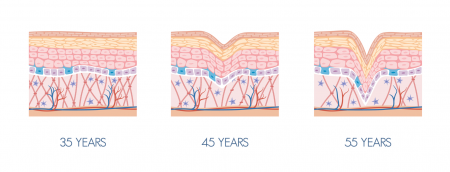
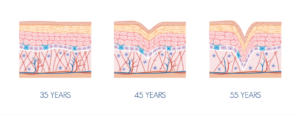
What this all means is:
Trying to sag-proof your skin… and zap those pesky dark circles…
By boosting collagen while ignoring elastin is like trying to ride a bicycle that’s missing one wheel.
For the longest time, it frustrated me that there was no simple, truly organic approach to boosting both elastin and collagen.
It’s especially challenging because…
These days, picking up a cream or potion with that “Natural” label isn’t an automatic green light.
Here’s why:
Once you dig deeper into the ingredients label you realize “Natural” could mean there’s one truly natural ingredient in a sea of artificial ones.
And that one ingredient could be grown with herbicides and insecticides.
There has to be a better way.
So, after extensive research we figured the most comprehensive approach to boosting both collagen and elastin with the most potent, 25 USDA Certified Organic ingredients.
Everyone who’s tried it loves how it’s also chock-full of antioxidants to combat free radical damage that makes your eyes and skin look old beyond their years.
If you’re ready to take years off your face, you’d want to click here to see how this 30-second ritual works.
Nearly everyone who learns about this novel approach is surprised to learn that…
Some of these superstar organics were treasured by Native Americans for their medicinal properties.
Go here to see how it’s already helping other women zap away dark circles and puffiness.
[1] https://www.ewg.org/what-are-parabens
